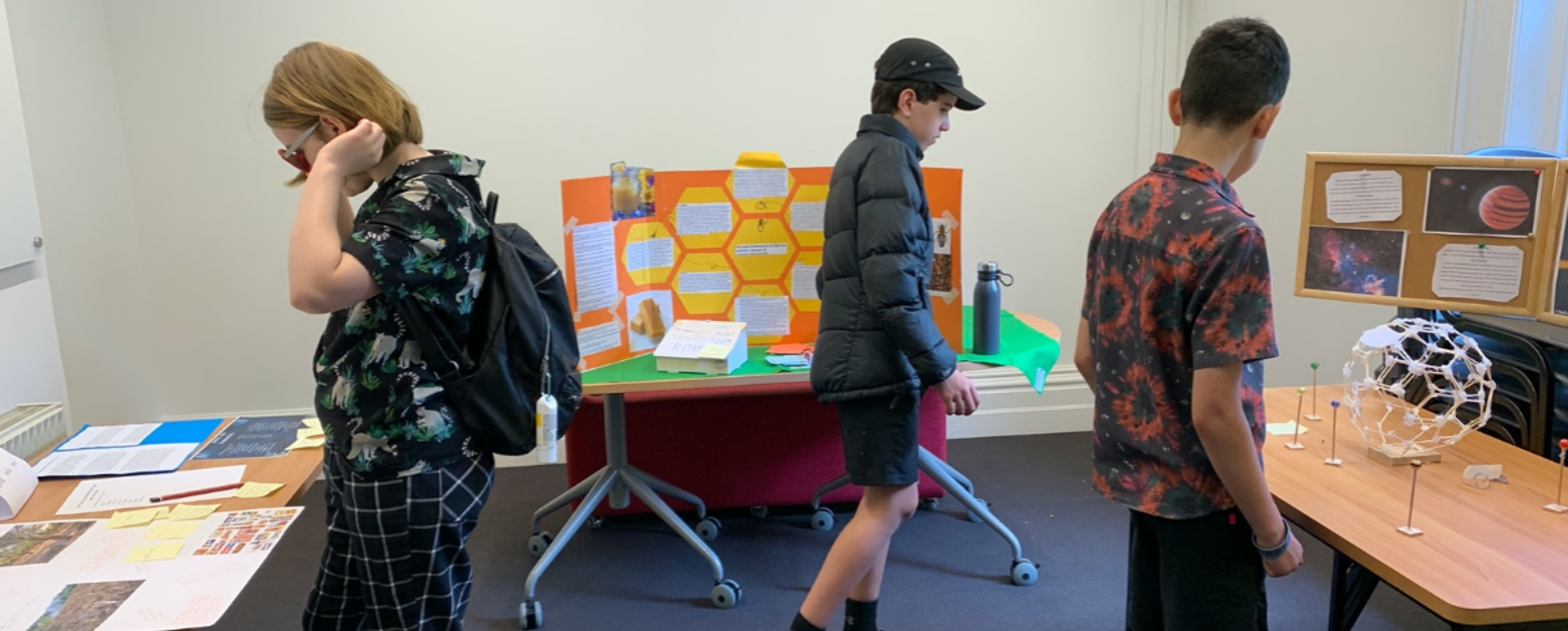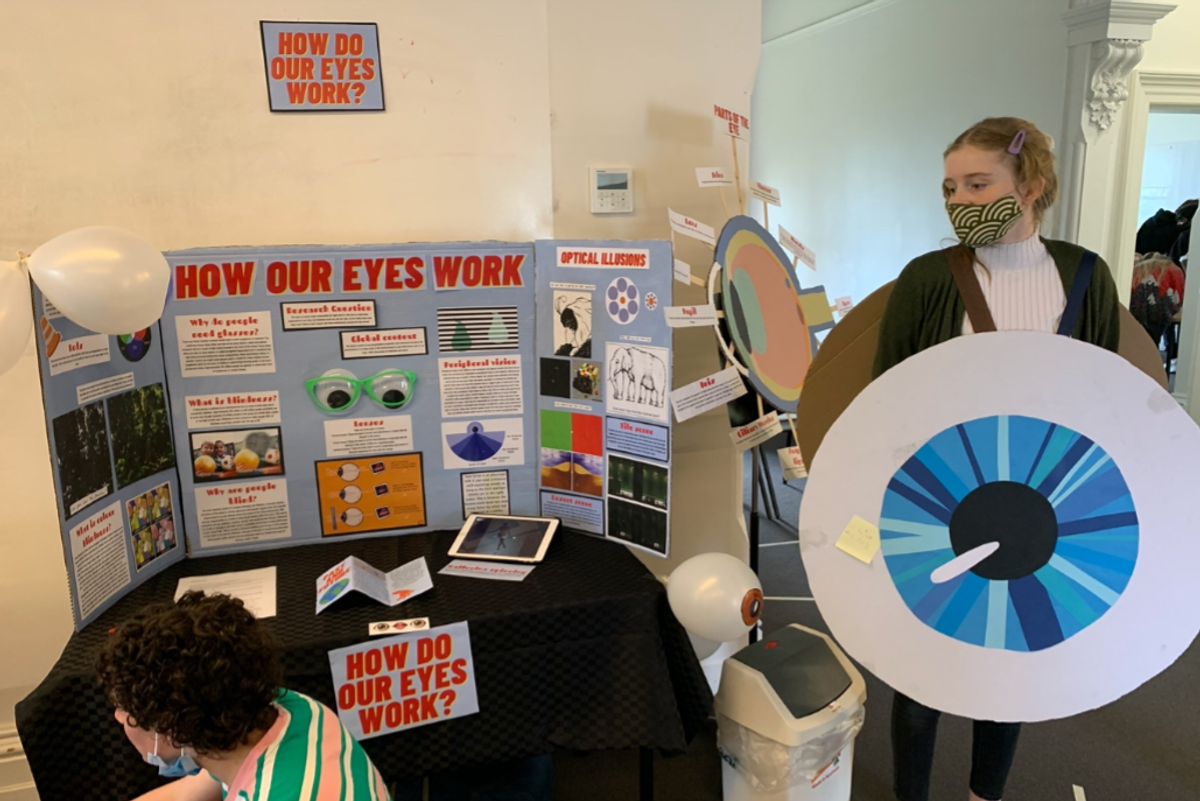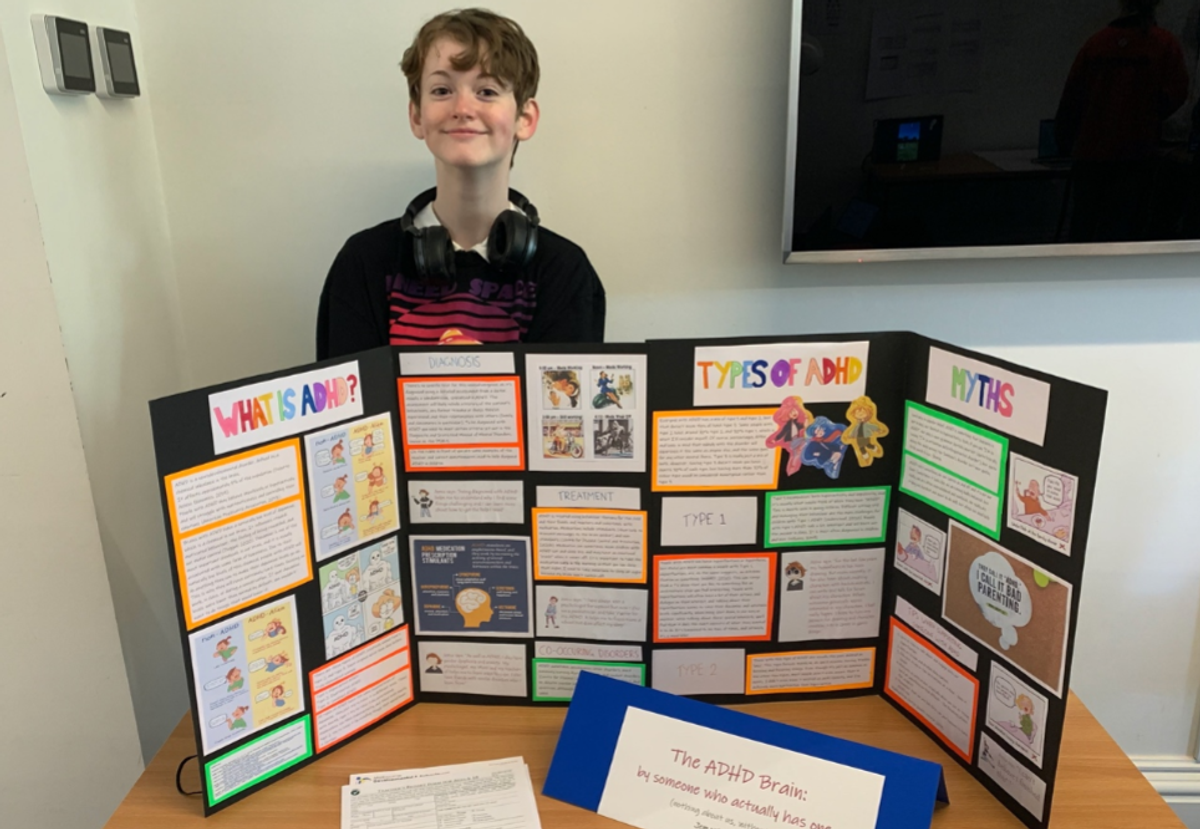Science
7/8 Science Exhibition 2020

Science
7/8 Science Exhibition 2020
After a tough Semester Two last year learning science at home, students in Years 7 and 8 finally had the chance to show off their research and practical skills at the Science Exhibition which was held on 7 December.


Students were required to formulate their own research question and to then answer that question through investigation or by carrying out an experiment. After eight weeks of hard work, these experimental findings were presented to the school community, including the Peppercorns (Years 5 and 6) at Arlington.


Science teachers, Amy Bryne, Kris Vestermark and Felicity Robinson would like to congratulate the 2020 Years 7 and 8 students for their wonderful efforts in putting together their exhibits. The feedback from students and teachers who visited the exhibition was very positive, and we are all looking forward to seeing what the current cohort can achieve at the 2021 Science Exhibition.


by Andrew Belegrinos
Teacher of Computer Science & Mathematics
According to LinkedIn (November 2020), more than half of the top ten jobs with the fastest-growing demand were related to computing. Aware of these trends, secondary school programmes are increasingly including material, traditionally found in the tertiary domain, into their curriculum.
DP Computer Science draws on a number of concepts, especially around algorithms and data structures, which the vast majority of those who (like myself) studied software engineering/computer science through the early 2000s, did not formally encounter until well after their university orientation week pub crawls! DP Computer Science extends beyond IT basics and develops those critical programming and computational thinking skills at the heart of the discipline.
For a peek at a small sample of the subject and to gain some insight into my teaching style, you may like to read this article I recently published relating to the pedagogic formulation of Computer Science questions.
by Amy Byrne
Teacher of Chemistry, TOK & Science
I teach both Science and Theory of Knowledge. Some people have commented to me that they don’t see the link between the two subjects, but I think they are deeply connected.
For my Year 7 Science class, I’m designing a topic to help students understand HOW scientists ask questions and design experiments. We’re going to be using the scientific method to develop experiments in order to answer questions.
For my Year 11 TOK class, I’m designing activities to help students understand WHY scientists ask questions in the way that they do. We’re also going to talk about the history of science, in an attempt to understand the outside forces that have shaped the path science has taken in its endeavour to comprehend the universe in which we live.
I couldn’t ask WHY at Year 11 had the work not been done by the junior Science teachers to spark that curiosity about HOW science functions.
When I (as a Science/Chemistry teacher) say I know something, that knowledge is predicated on hundreds of years of experiments and inductive logic. How I ask questions, and how I analyse and reason based on the data collected, is dependent on why I ask those particular questions.
I think there’s often a perception of science as being somehow ‘purer’ or less tainted by ideology or external forces and pressures than other areas of human inquiry (for example, history). Asking students to analyse how and why scientists ask questions, whether in Years 7 or 11, properly embeds science as a field of human endeavour.